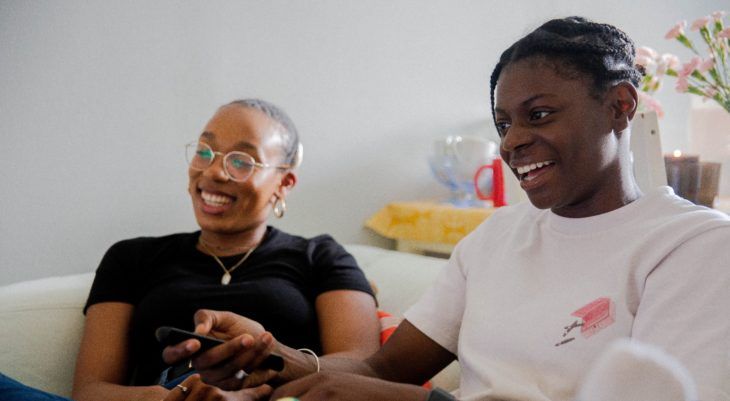The Worth Women’s Project: a trauma-informed approach to violence reduction

Launched in November 2019, Forward’s Worth Women’s Project is a gender-specific violence reduction project delivered in Thanet, Margate. Here Ann Humphreys, our Criminal Justice Team Leader in East Kent who leads on the project, tells us what inspired the idea and how things have unfolded.
“In 2019, my team and I realised that the retention rates for our female clients were far lower than for their male counterparts, so we decided to explore why women weren’t engaging as much. Criminal Justice worker Tony Riches visited a Women’s Centre in Brighton while the team read through the Corston Report (a 2007 review into the treatment of vulnerable women in the criminal justice system). We also discussed the issue with other professionals, such as the Women’s Lead at a local probation service.
We realised that the low engagement could be linked to the fact that many female clients, in addition to having multiple and complex needs, have complicated relationships with authorities and related service providers. This can be particularly pronounced when they’ve been through a traumatic experience they feel was either caused or exacerbated by these organisations, such as having children taken away by social services. It also became clear that the area needed the kind of Women’s Centre Tony had visited in Brighton. This centre, the closest option of its kind at the time, was still over 50 miles away from our clients East Kent.
The team put together some ideas on how to address these issues and improve engagement, but it became apparent that due to the scope of the work involved, it would need to become a standalone project with funding to cover the cost of dedicated workers.
I did some research and discovered that Kent’s Police and Crime Commissioner had a pot of funding we could apply for, which was part of the Government’s Violence Reduction Challenge. I approached our Fundraising Team to see if they could support me and together we put together a proposal for funding for the project. Shortly after, we were thrilled to discover we’d been awarded the funds!
The Worth Women’s Project was born. Initially delivered to women in Thanet, Margate (one of the hubs where we deliver services as part of the East Kent contract), the project aims to protect women by reducing their vulnerability to threats of violence. It is targeted at women in contact with the criminal justice system who may have experienced domestic violence, substance misuse issues, trauma, involvement in violent crime, or any combination of these factors.
The project was originally delivered through face-to-face workshops exploring subjects like healthy relationships, attitudes towards crime, safe-coping, decision-making, recognising danger and managing potential pitfalls. Using trauma-informed approaches and evidence-based practices, project participants learned more about their own behaviour and developed new skills to challenge unhealthy responses, building resilience and preventing risk from harm.
When Covid-19 hit, the project co-ordinators continued to work remotely with one-to-one sessions over the phone and twice-weekly Zoom coffee mornings. This was particularly important given the well-reported rise in domestic violence happening as a result of lockdown.
Over 60 women have engaged in the project to date, ranging in age from 22 to 76 years old. Clients completed forms before and after the interventions which measured depression, anxiety, mental wellbeing, self-worth, resilience and attitudes to crime. The project was found to have statistically significant improvements on all of these measures. There has also been extremely positive informal feedback from participants.
The project is ongoing and there are still challenges – including our ability to reach women who are still in custody awaiting release and the fact that a lot of referrals we receive are not suitable for our service. However we are optimistic about the future and proud of the fantastic work done so far. In particular, we are so proud of the team’s passion for the project – our staff have been truly amazing. You can tell that the service users know how much the team cares for them and this project, which comes across in all of the feedback we’ve had from them.”
– Ann Humphreys, Criminal Justice Team Leader – East Kent, The Forward Trust